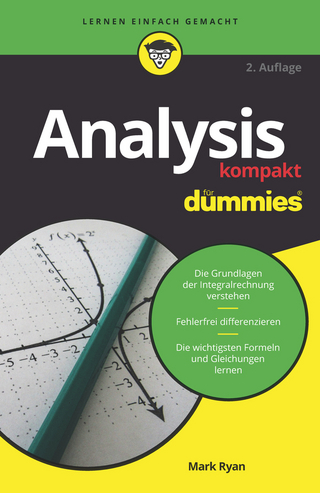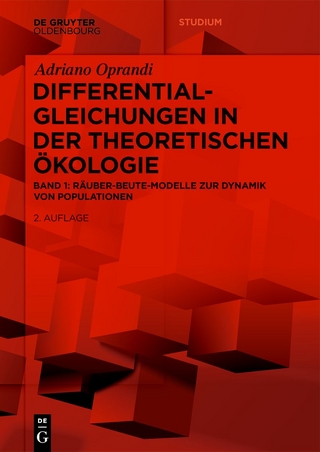
LQ Dynamic Optimization and Differential Games
John Wiley & Sons Inc (Verlag)
978-0-470-01524-7 (ISBN)
Game theory is the theory of social situations, and the majority of research into the topic focuses on how groups of people interact by developing formulas and algorithms to identify optimal strategies and to predict the outcome of interactions. Only fifty years old, it has already revolutionized economics and finance, and is spreading rapidly to a wide variety of fields. LQ Dynamic Optimization and Differential Games is an assessment of the state of the art in its field and the first modern book on linear-quadratic game theory, one of the most commonly used tools for modelling and analysing strategic decision making problems in economics and management. Linear quadratic dynamic models have a long tradition in economics, operations research and control engineering; and the author begins by describing the one-decision maker LQ dynamic optimization problem before introducing LQ differential games.
Covers cooperative and non-cooperative scenarios, and treats the standard information structures (open-loop and feedback).
Includes real-life economic examples to illustrate theoretical concepts and results.
Presents problem formulations and sound mathematical problem analysis.
Includes exercises and solutions, enabling use for self-study or as a course text.
Supported by a website featuring solutions to exercises, further examples and computer code for numerical examples.
LQ Dynamic Optimization and Differential Games offers a comprehensive introduction to the theory and practice of this extensively used class of economic models, and will appeal to applied mathematicians and econometricians as well as researchers and senior undergraduate/graduate students in economics, mathematics, engineering and management science.
Jacob Engwerda is the author of LQ Dynamic Optimization and Differential Games, published by Wiley.
Preface. Notation and symbols.
1 Introduction.
1.1 Historical perspective.
1.2 How to use this book.
1.3 Outline of this book.
1.4 Notes and references.
2 Linear algebra.
2.1 Basic concepts in linear algebra.
2.2 Eigenvalues and eigenvectors.
2.3 Complex eigenvalues.
2.4 Cayley–Hamilton theorem.
2.5 Invariant subspaces and Jordan canonical form.
2.6 Semi-definite matrices.
2.7 Algebraic Riccati equations.
2.8 Notes and references.
2.9 Exercises.
2.10 Appendix.
3 Dynamical systems.
3.1 Description of linear dynamical systems.
3.2 Existence–uniqueness results for differential equations.
3.2.1 General case.
3.2.2 Control theoretic extensions.
3.3 Stability theory: general case.
3.4 Stability theory of planar systems.
3.5 Geometric concepts.
3.6 Performance specifications.
3.7 Examples of differential games.
3.8 Information, commitment and strategies.
3.9 Notes and references.
3.10 Exercises.
3.11 Appendix.
4 Optimization techniques.
4.1 Optimization of functions.
4.2 The Euler–Lagrange equation.
4.3 Pontryagin’s maximum principle.
4.4 Dynamic programming principle.
4.5 Solving optimal control problems.
4.6 Notes and references.
4.7 Exercises.
4.8 Appendix.
5 Regular linear quadratic optimal control.
5.1 Problem statement.
5.2 Finite-planning horizon.
5.3 Riccati differential equations.
5.4 Infinite-planning horizon.
5.5 Convergence results.
5.6 Notes and references.
5.7 Exercises.
5.8 Appendix.
6 Cooperative games.
6.1 Pareto solutions.
6.2 Bargaining concepts.
6.3 Nash bargaining solution.
6.4 Numerical solution.
6.5 Notes and references.
6.6 Exercises.
6.7 Appendix.
7 Non-cooperative open-loop information games.
7.1 Introduction.
7.2 Finite-planning horizon.
7.3 Open-loop Nash algebraic Riccati equations.
7.4 Infinite-planning horizon.
7.5 Computational aspects and illustrative examples.
7.6 Convergence results.
7.7 Scalar case.
7.8 Economics examples.
7.8.1 A simple government debt stabilization game.
7.8.2 A game on dynamic duopolistic competition.
7.9 Notes and references.
7.10 Exercises.
7.11 Appendix.
8 Non-cooperative feedback information games.
8.1 Introduction.
8.2 Finite-planning horizon.
8.3 Infinite-planning horizon.
8.4 Two-player scalar case.
8.5 Computational aspects.
8.5.1 Preliminaries.
8.5.2 A scalar numerical algorithm: the two-player case.
8.5.3 The N-player scalar case.
8.6 Convergence results for the two-player scalar case.
8.7 Notes and references.
8.8 Exercises.
8.9 Appendix.
9 Uncertain non-cooperative feedback information games.
9.1 Stochastic approach.
9.2 Deterministic approach: introduction.
9.3 The one-player case.
9.4 The one-player scalar case.
9.5 The two-player case.
9.6 A fishery management game.
9.7 A scalar numerical algorithm.
9.8 Stochastic interpretation.
9.9 Notes and references.
9.10 Exercises.
9.11 Appendix.
References.
Index.
| Erscheint lt. Verlag | 17.6.2005 |
|---|---|
| Verlagsort | New York |
| Sprache | englisch |
| Maße | 173 x 252 mm |
| Gewicht | 1116 g |
| Themenwelt | Mathematik / Informatik ► Mathematik ► Analysis |
| Mathematik / Informatik ► Mathematik ► Angewandte Mathematik | |
| Mathematik / Informatik ► Mathematik ► Finanz- / Wirtschaftsmathematik | |
| Mathematik / Informatik ► Mathematik ► Wahrscheinlichkeit / Kombinatorik | |
| Wirtschaft ► Volkswirtschaftslehre | |
| ISBN-10 | 0-470-01524-1 / 0470015241 |
| ISBN-13 | 978-0-470-01524-7 / 9780470015247 |
| Zustand | Neuware |
| Haben Sie eine Frage zum Produkt? |
aus dem Bereich


